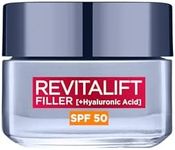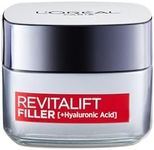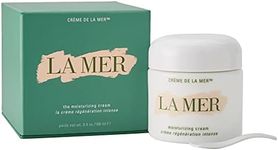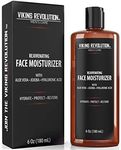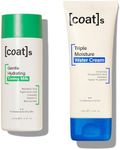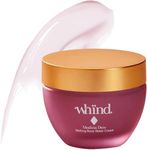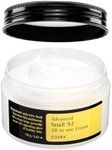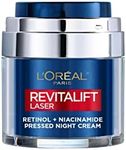Buying Guide for the Best Anti Aging Face Creams
Choosing the right anti-aging face cream can be a daunting task given the plethora of options available. The key is to understand your skin type, concerns, and the ingredients that will best address those issues. Anti-aging creams are designed to reduce the appearance of wrinkles, fine lines, and other signs of aging, but not all creams are created equal. Knowing what to look for in terms of ingredients and formulation can help you make an informed decision and find the best product for your needs.IngredientsIngredients are the most crucial aspect of any anti-aging face cream. Look for active ingredients like retinol, hyaluronic acid, peptides, and antioxidants. Retinol helps to increase cell turnover and reduce wrinkles, hyaluronic acid provides intense hydration, peptides support collagen production, and antioxidants protect the skin from environmental damage. Depending on your skin type and specific concerns, you may prioritize certain ingredients over others. For example, if you have dry skin, a cream with hyaluronic acid might be more beneficial.
Skin TypeYour skin type plays a significant role in determining which anti-aging face cream will work best for you. If you have oily skin, you might prefer a lightweight, non-comedogenic formula that won't clog pores. For dry skin, a richer, more hydrating cream is ideal. Combination skin types may need a balanced formula that hydrates without being too heavy. Sensitive skin types should look for creams with soothing ingredients like aloe vera or chamomile and avoid harsh chemicals.
TextureThe texture of the face cream can affect how it feels on your skin and how well it absorbs. Creams can range from lightweight gels to thick, rich formulations. If you prefer a quick-absorbing product, a gel or serum might be more suitable. For those who enjoy a more luxurious feel, a thicker cream can provide a sense of indulgence and deeper hydration. Your preference for texture can guide you in choosing a product that you'll enjoy using daily.
SPFSun protection is essential in any anti-aging regimen. Many anti-aging face creams include SPF to protect your skin from harmful UV rays, which can accelerate aging. Look for a cream with at least SPF 30 for daily use. If you spend a lot of time outdoors, you might need a higher SPF. Incorporating SPF into your anti-aging cream simplifies your routine and ensures your skin is protected throughout the day.
FragranceFragrance in face creams can be a matter of personal preference and skin sensitivity. Some people enjoy a pleasant scent, while others may find it irritating. If you have sensitive skin or are prone to allergies, it's best to choose a fragrance-free formula to avoid potential irritation. If you enjoy scented products, ensure the fragrance is derived from natural sources to minimize the risk of adverse reactions.
PackagingPackaging can impact the effectiveness and longevity of the product. Air-tight containers and pumps help preserve the active ingredients and prevent contamination. Jars can expose the cream to air and bacteria each time you open them, potentially reducing its efficacy over time. Consider how you prefer to dispense your product and choose packaging that maintains the integrity of the ingredients.


